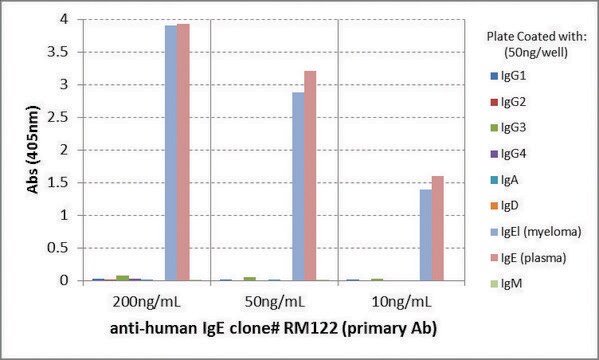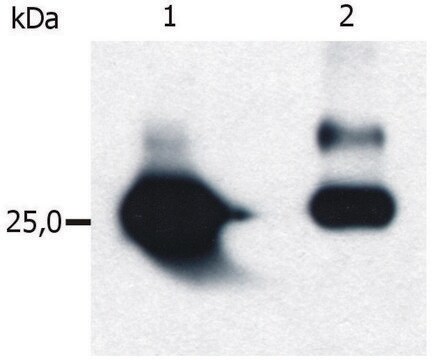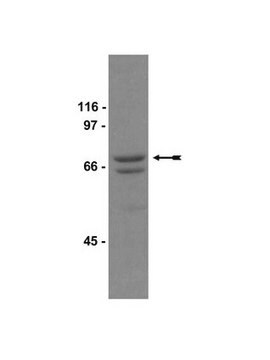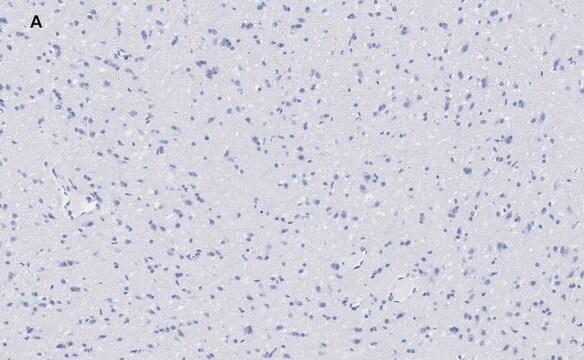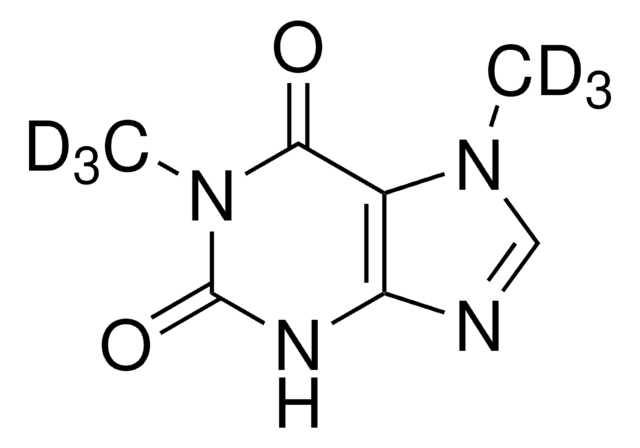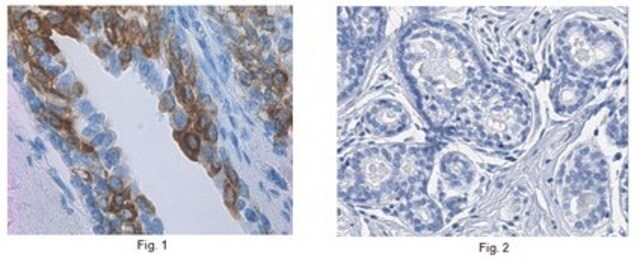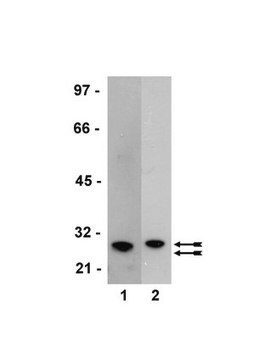ZRB1554
Anti-p-IκBα-Ser32 Antibody, clone 11D19 ZooMAb® Rabbit Monoclonal

recombinant, expressed in HEK 293 cells
About This Item
Produits recommandés
Source biologique
rabbit
Niveau de qualité
Produit recombinant
expressed in HEK 293 cells
Conjugué
unconjugated
Forme d'anticorps
purified antibody
Type de produit anticorps
primary antibodies
Clone
11D19, recombinant monoclonal
Description
recombinant, expressed in HEK 293 cells
Gamme de produits
ZooMAb® learn more
Forme
lyophilized
Poids mol.
calculated mol wt 35.61 kDa
observed mol wt ~40 kDa
Produit purifié par
using Protein A
Espèces réactives
human
Réactivité de l'espèce (prédite par homologie)
porcine, monkey, feline, canine, bovine
Conditionnement
antibody small pack of 25 μL
Caractéristiques du produit alternatif plus écologique
Waste Prevention
Designing Safer Chemicals
Design for Energy Efficiency
Learn more about the Principles of Green Chemistry.
Validation améliorée
recombinant expression
Learn more about Antibody Enhanced Validation
Technique(s)
affinity binding assay: suitable
flow cytometry: suitable
immunocytochemistry: suitable
inhibition assay: suitable
western blot: suitable
Isotype
IgG
Séquence de l'épitope
N-terminus
Numéro d'accès Protein ID
Numéro d'accès UniProt
Autre catégorie plus écologique
, Aligned
Conditions d'expédition
ambient
Température de stockage
2-8°C
Modification post-traductionnelle de la cible
phosphorylation (pSer32)
Informations sur le gène
human ... NFKBIA(4792)
Description générale
Spécificité
Immunogène
Application
Evaluated by Western Blotting in lysate from HeLa cells treated with TNF- .
Western Blotting Analysis (WB): A 1:1,000 dilution of this antibody detected IkB in lysate from overnight starved HeLa cells treated with TNF- (100 ng/mL), but not in untreated cells.
Tested applications
Western Blotting Analysis: A 1:1,000 dilution of this antibody detected a construct containing GST-tagged recombinant IkBa protein fragment phosphorylated on Ser32 but did not detect in non-phosphorylated construct. (Phospho- IkBa construct: Courtesy of Dr. Jesse Rinehart, Yale University, School of Medicine).
Affinity Binding Assay: A representative lot of this antibody bound phospho-IkB -Ser32 with a KD of 6.9 x 10-7 in an affinity binding assay.
Immunocytochemistry Analysis: A 1:1,000 dilution from a representative lot detected phospho- IkB -Ser32 in HeLa cells.
Peptide Inhibition Assay: Target band detection in a construct containing GST-tagged recombinant IkBa protein fragment phosphorylated on Ser32 was prevented by pre-blocking of a representative lot with the immunogen phosphopeptide, but not the corresponding non-phosphopeptide.
Flow Cytometry Analysis: 0.1 μg from a representative lot detected phospho-IkB -Ser32 in one million HeLa cells.
Note: Actual optimal working dilutions must be determined by end user as specimens, and experimental conditions may vary with the end user
Description de la cible
Forme physique
Reconstitution
Stockage et stabilité
Informations légales
Clause de non-responsabilité
Vous ne trouvez pas le bon produit ?
Essayez notre Outil de sélection de produits.
Code de la classe de stockage
13 - Non Combustible Solids
Classe de danger pour l'eau (WGK)
WGK 1
Point d'éclair (°F)
Not applicable
Point d'éclair (°C)
Not applicable
Certificats d'analyse (COA)
Recherchez un Certificats d'analyse (COA) en saisissant le numéro de lot du produit. Les numéros de lot figurent sur l'étiquette du produit après les mots "Lot" ou "Batch".
Déjà en possession de ce produit ?
Retrouvez la documentation relative aux produits que vous avez récemment achetés dans la Bibliothèque de documents.
Notre équipe de scientifiques dispose d'une expérience dans tous les secteurs de la recherche, notamment en sciences de la vie, science des matériaux, synthèse chimique, chromatographie, analyse et dans de nombreux autres domaines..
Contacter notre Service technique